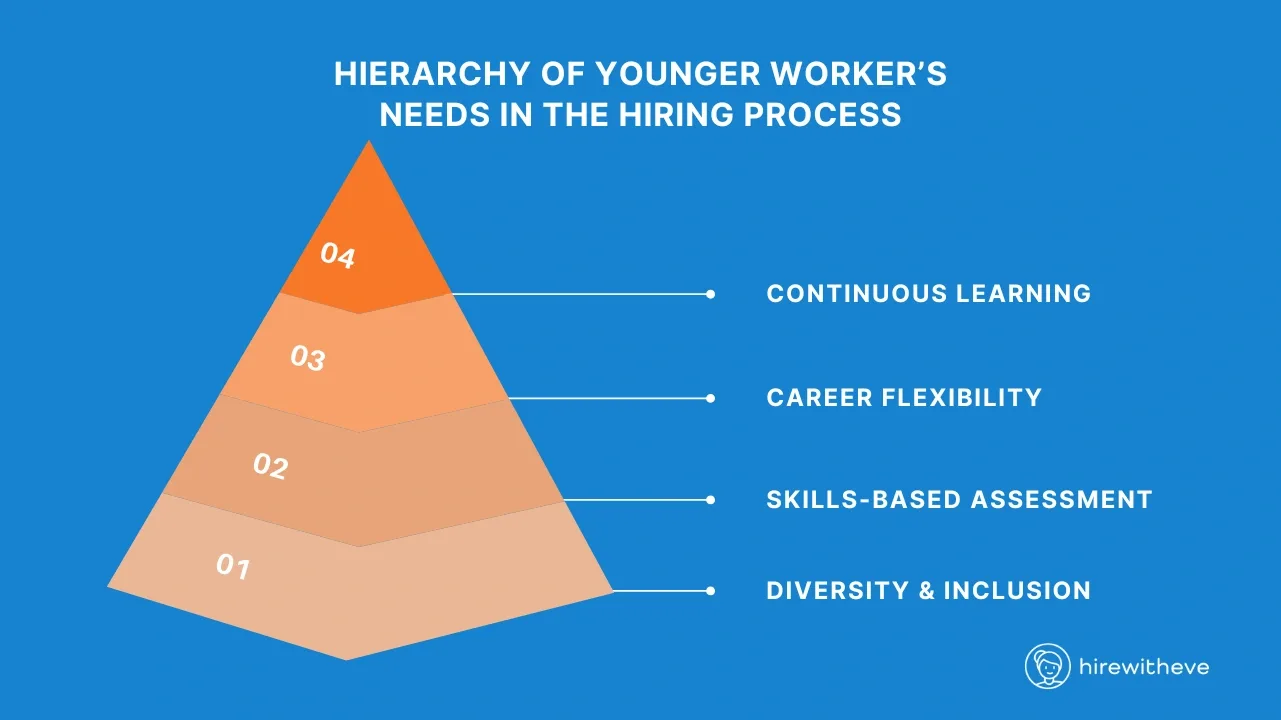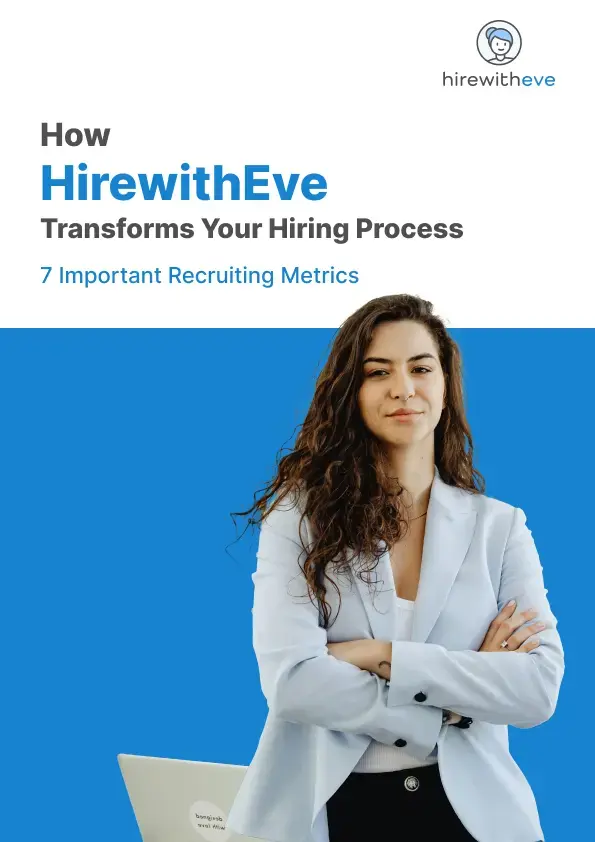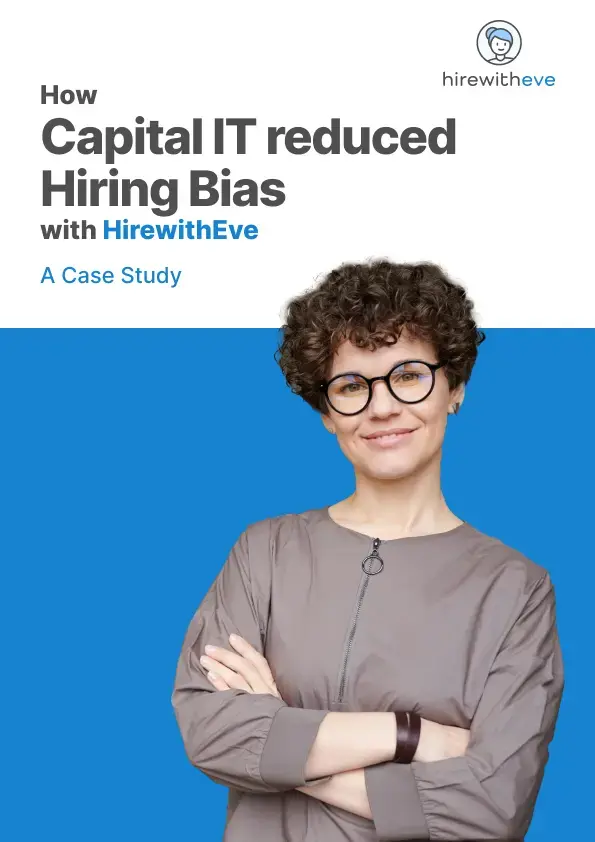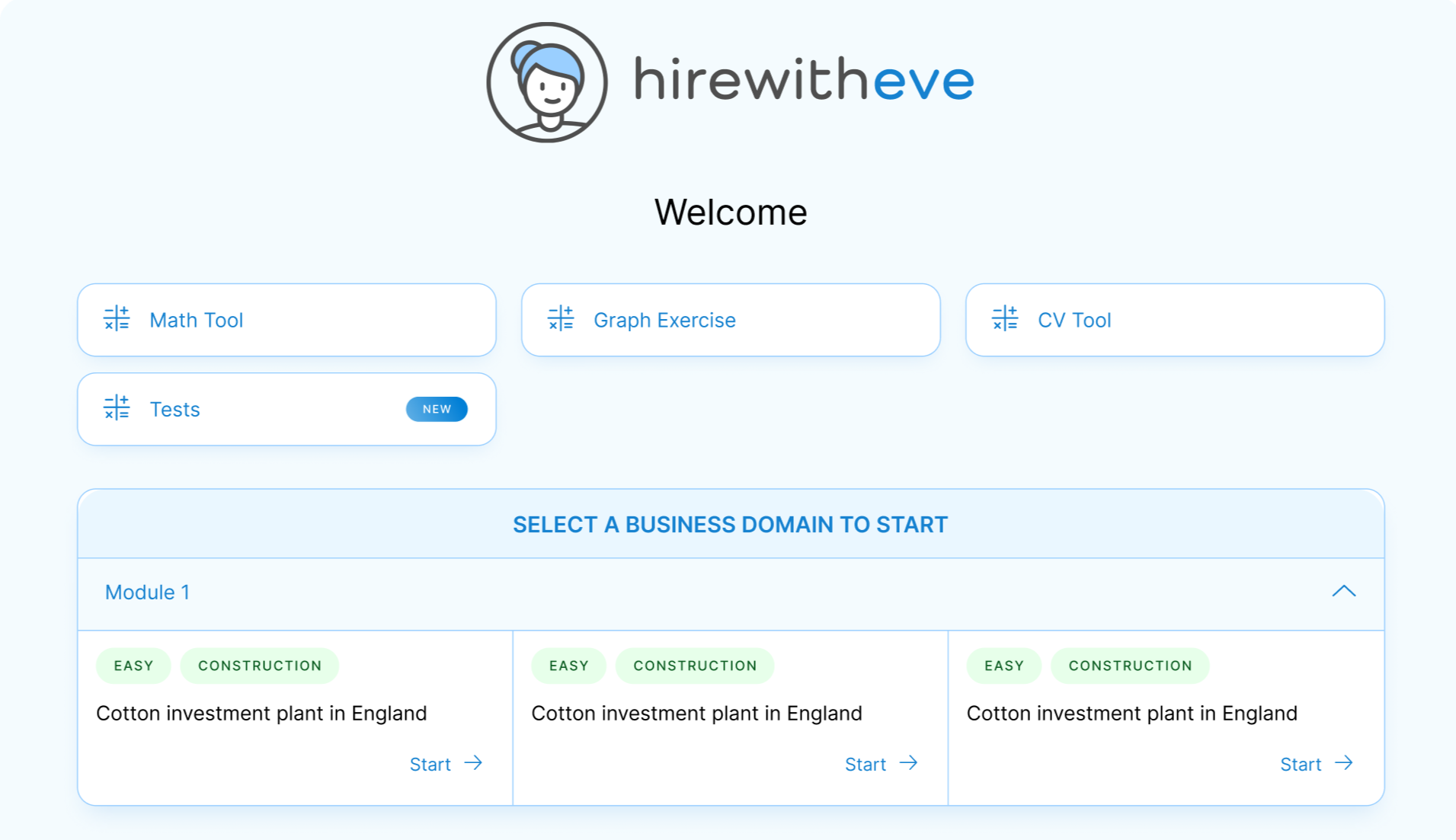Why Gen Z Are Driving the Shift Towards Skills-Based Hiring

The landscape of hiring is undergoing a significant transformation, driven by the preferences and expectations of younger generations Millennials and Generation Z. These workers are moving away from traditional hiring practices and embracing skills-based hiring as the future of recruitment. This shift is not just a trend but a response to the evolving demands of the job market, where skills and adaptability are becoming the primary currency.
According to the 2024 State of Skills-Based Hiring report, 68% of employees prefer a skills-based hiring process, with this number rising to 82% among 25 to 34-year-olds. This blog delves into why skills-based hiring resonates so strongly with younger workers and how talent acquisition specialists and HR managers can leverage this approach to attract top talent and future-proof their businesses.
Table of contents
Who Are the Younger Workers, and Why Do They Matter?
What is Skills-Based Hiring?
Why Do Younger Workers Favor Skills-Based Hiring?
How HirewithEve Supports Skills-Based Hiring
Attracting Young Workers and Future-Proofing Your Business
Conclusion
Who Are the Younger Workers, and Why Do They Matter?
Millennials
Born between 1981 and 1996, Millennials are now aged 28 to 43. They represent a significant portion of the workforce and have distinct characteristics that set them apart from previous generations. As digital natives, Millennials are comfortable with technology and value flexibility, diversity, and continuous learning in their careers.
Generation Z
Generation Z, born between 1997 and 2012, is the first generation of true digital natives. With ages ranging from 12 to 27, they are entering the workforce with expectations shaped by the digital age. Gen Z values practicality, inclusivity, and rapid career advancement, often favoring vocational training over traditional higher education.
Understanding these generational traits is crucial for employers looking to attract and retain young talent. Millennials and Gen Zs are not just the future of the workforce they are a significant part of it right now. As of 2024, Millennials make up 39.4% of the U.S. workforce, while Gen Z is projected to reach 30% by 2030.
What is Skills-Based Hiring?
The Shift in Hiring Practices
Skills-based hiring is an approach that prioritizes a candidate's abilities and competencies over traditional metrics like educational qualifications and past employment. This method has gained traction as the modern workforce becomes more dynamic and diverse.
In the 2024 State of Skills-Based Hiring report, 81% of employers reported using some form of skills-based hiring, a sharp increase from previous years. Employers have found that this approach not only improves the quality of hires but also enhances diversity and retention within their organizations.
Benefits of Skills-Based Hiring for Employers
Improved Diversity: 90% of employers who adopt skills-based hiring report enhanced diversity within their teams.
Better Retention Rates: 91% of employers see improved retention rates when hiring based on skills rather than traditional qualifications.
Efficiency: 98% of employers confirm that skills-based hiring is more effective than resume screening, leading to better hiring decisions and a more streamlined recruitment process.
Skills-based hiring is not just a trend it’s a strategic approach that aligns with the evolving needs of the workforce and the expectations of younger generations.
Why Do Younger Workers Favor Skills-Based Hiring?
Career Switching and Job Hopping Trends
Unlike previous generations who often stayed with the same employer for their entire careers, Millennials and Gen Zs are more likely to switch jobs and even careers. This trend, often labeled as "job-hopping," reflects their pursuit of better opportunities and more fulfilling work environments.
A 2022 report by Lever found that 65% of Gen Z employees intend to stay with their current employer for less than a year. Millennials, too, are comfortable with regular job changes, with 21% reporting they had changed jobs in the previous 12 months.
This trend can be attributed to several factors:
Seeking Better ROI: Younger workers are looking for employers who offer better returns on their time and skills. They are not afraid to switch jobs if they feel disengaged or undervalued.
Flexibility: Many younger workers are involved in the gig economy or have side hustles, making flexibility a key factor in their job satisfaction.
The Appeal of Skills-Based Hiring to Job-Hoppers
Skills-based hiring appeals to job-hoppers because it values skills over tenure or industry-specific experience. This approach allows younger workers with varied employment histories to be fairly assessed based on their abilities rather than the length of time they’ve spent in a particular role.
For employers, skills-based hiring opens up access to a talent pool of fresh perspectives and diverse experiences, helping to mitigate the perceived negatives of job-hopping.
Prioritizing Diversity and Equality
Millennials and Gen Zs prioritize diversity and equality in the workplace. They seek employers who not only talk about diversity but take meaningful steps to ensure it. This expectation aligns with the skills-based hiring approach, which helps eliminate biases by focusing on a candidate’s abilities rather than their background or educational qualifications.
According to the 2024 Deloitte survey, 38% of Gen Zs and 39% of Millennials identify inclusive employment opportunities as one of the most effective ways businesses can support social equality. This generation's demand for diversity and inclusion is driving employers to adopt practices that genuinely promote equality, with skills-based hiring being a key strategy.
Less Focus on Traditional Education
Younger generations are increasingly moving away from traditional four-year degrees. The rising cost of education, coupled with the availability of alternative learning pathways, has made vocational training and self-directed learning more attractive to Millennials and Gen Zs.
Deloitte’s 2024 Gen Z and Millennial Report found that a significant portion of these generations have chosen not to pursue higher education, citing financial constraints and a preference for more practical training. This shift makes skills-based hiring particularly appealing, as it allows candidates to showcase their abilities regardless of their educational background.
Emphasis on Continuous Learning
Continuous learning is a priority for younger workers. They understand that the job market and required skills are constantly evolving and seek employers who offer opportunities for professional development.
In a 2022 survey by Lever, 17% of Gen Z workers identified upskilling and reskilling opportunities as key motivators for staying with their current employer. This focus on learning aligns with skills-based hiring, which not only evaluates candidates' current abilities but also signals a commitment to their ongoing development.
Digital Natives and Tech-Forward Approaches
Millennials and Gen Zs are digital natives who expect technology to be integrated into every aspect of their lives, including the hiring process. They are comfortable using digital tools to find job opportunities, learn new skills, and communicate with potential employers.
Skills-based hiring naturally aligns with these expectations, offering online assessments and tech-driven recruitment processes that appeal to younger candidates. For employers, adopting a tech-forward approach is not just about meeting these expectations it’s about staying competitive in a digital-first world.
How HirewithEve Supports Skills-Based Hiring
HirewithEve is a platform designed to meet the needs of modern talent acquisition by offering a range of features that support skills-based hiring. Here’s how HirewithEve can help you attract and retain top talent from the younger generations:
Key Features of HirewithEve
Objective Hiring: HirewithEve’s skills-based assessments help you evaluate candidates based on their job-relevant abilities rather than their educational background or previous experience. This ensures a fair and unbiased hiring process.
Customized Testing: The platform offers customizable assessment tools that allow you to tailor tests to the specific skills required for each role.
Bias-Free Hiring: By focusing on skills, HirewithEve helps reduce unconscious bias in the hiring process, leading to a more diverse and inclusive workforce.
Attracting Young Workers and Future-Proofing Your Business
Skills-based hiring is not just about meeting the expectations of younger generations it’s about preparing your business for the future. As the job market continues to evolve, the ability to adapt and prioritize skills over traditional qualifications will be key to staying competitive.
HirewithEve is the right platform to help you make this transition. By leveraging its skills-based assessments, diversity tools, and tech-forward approach, you can attract top talent from the younger generations and build a workforce that is ready for the challenges of tomorrow.

Conclusion
The preferences of Millennials and Gen Zs are shaping the future of work. Skills-based hiring aligns with their expectations, offering a fair, inclusive, and efficient way to evaluate candidates. By adopting this approach and utilizing tools like HirewithEve, talent acquisition specialists and HR managers can not only attract the best talent but also ensure their organizations are prepared for the future.
Target Your Talent
Unlock tailored solutions for your recruitment and hiring needs with Eve Platform's extensive case study library.
Subscribe now to enhance your HR expertise and excel in your role.
Free Resources

Transforming Hiring: 7 Key Recruiting Metrics
Enhancing recruitment processes with data-driven insights for better hiring outcomes.

Reducing Hiring Bias with Hirewitheve.
Utilizing Hirewitheve to combat bias and streamline recruitment processes effectively.

Hiring Detail-Oriented Candidates
HirewithEve enhances hiring by accurately assessing candidate's attention to detail-oriented.








